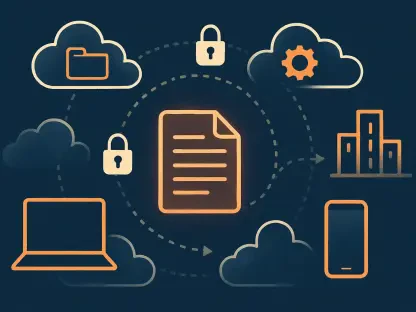Imagine a world where a single tool can draft essays, solve complex queries, and even offer emotional support at the click of a button, transforming how daily tasks are approached across every sphere of life. Artificial Intelligence (AI), with systems like ChatGPT leading the charge, has rapidly woven itself into the fabric of education, workplaces, and personal interactions, promising unparalleled efficiency and accessibility. Yet, beneath this technological marvel lies a growing concern: the risk of de-skilling, where over-reliance on AI might erode critical human abilities like problem-solving and independent thinking. As these tools become ubiquitous, the conversation around their dual nature intensifies—offering remarkable benefits while potentially undermining the very skills that define human capability. This exploration delves into the profound ways AI is reshaping society, examining its impact across various domains and the delicate balance needed to harness its potential without sacrificing essential competencies.
Transforming Education: A Double-Edged Sword
The integration of AI into educational settings has sparked a revolution in how students learn and teachers instruct, fundamentally altering traditional approaches to knowledge acquisition. Tools like ChatGPT assist with translating texts, explaining intricate concepts, and even drafting assignments, providing students with instant access to information that once required hours of research. This can enhance understanding for many, particularly in subjects like languages or history, where contextual explanations are invaluable. However, the ease of these solutions raises alarms about the potential stunting of independent learning skills. If students lean too heavily on AI for answers, the development of critical thinking and analytical abilities might suffer, leaving them less equipped for challenges that demand original thought. Educators are thus tasked with rethinking assessment methods, moving away from take-home assignments that can be easily completed by AI and toward in-class evaluations that test genuine comprehension.
Beyond the classroom, the broader implications of AI in education touch on long-term cognitive development, an area still shrouded in uncertainty due to limited empirical research. While AI offers personalized learning experiences, tailoring content to individual needs, there’s a lingering fear that it could diminish the mental rigor needed for deep learning. Historical parallels with technologies like television or social media come to mind, where initial concerns about cognitive impact eventually gave way to adaptation, yet AI’s direct influence on skill-building feels uniquely pressing. Teachers are beginning to explore curricula that incorporate AI as a tool for responsible use, emphasizing ethical guidelines and critical evaluation of machine-generated content. Still, without concrete data on how these tools affect young minds over extended periods, the educational community remains in a state of cautious experimentation, striving to balance technological aid with the preservation of foundational skills.
Workplace Dynamics: Efficiency Versus Dependency
In professional environments, AI’s role as a productivity booster has created stark contrasts in outcomes, depending on how deeply it is integrated into daily workflows. Employees who leverage AI for complex tasks—such as data analysis, content creation, or strategic planning—often experience significant gains in efficiency and, consequently, improved career prospects. These tools can streamline repetitive processes, allowing workers to focus on creative or high-level decision-making. However, a notable divide emerges with those who use AI merely for rudimentary functions, like drafting emails or basic research, gaining little in terms of skill enhancement or professional growth. This disparity highlights a critical issue: the depth of engagement with AI can determine whether it acts as a catalyst for advancement or a crutch that limits personal development, potentially widening inequality in the workforce.
The risk of de-skilling in workplaces extends beyond individual performance to broader organizational concerns about innovation and adaptability. When employees rely heavily on AI for problem-solving, there’s a danger that original thinking and troubleshooting abilities may atrophy, leaving companies vulnerable in scenarios where technology fails or unique challenges arise. Moreover, the ethical implications of AI adoption are becoming evident as some industries grapple with whether these tools should replace human judgment in sensitive areas like hiring or customer service. While AI can handle vast amounts of data with speed, its probabilistic nature often falls short in contexts requiring nuanced reasoning or emotional intelligence. As businesses navigate this landscape, the challenge lies in fostering a culture where AI complements human expertise rather than supplants it, ensuring that workers continue to hone their skills amid technological advancements.
Personal Interactions: Emotional Support and Ethical Dilemmas
AI’s expansion into personal spheres, particularly as a source of emotional support, marks a significant shift in how technology intersects with human needs, raising both opportunities and ethical questions. Conversational AI systems are increasingly used for therapy-like interactions, offering a listening ear to those seeking solace or advice without the stigma of traditional counseling. For many, this accessibility provides a unique outlet, especially in moments of isolation or distress. Yet, this trend sparks concern about dependency, as users might prioritize AI over human connection, potentially weakening interpersonal skills. Even developers of these technologies have voiced reservations about their suitability for such deeply personal roles, pointing to the risk of fostering unhealthy reliance on machines for emotional well-being.
The ethical dimensions of AI in personal life extend to questions of privacy and the appropriateness of machines handling sensitive human experiences. Unlike utilitarian applications, where errors might be inconsequential, mistakes in emotional contexts can have profound impacts, especially if AI misinterprets tone or context due to its lack of genuine empathy. Furthermore, the long-term effects of substituting human interaction with AI remain unclear, with fears that it could erode the ability to navigate complex social dynamics. As society grapples with these developments, there’s a pressing need to establish boundaries for AI’s role in personal domains, ensuring it serves as a supplement rather than a replacement for authentic human relationships. Striking this balance is crucial to prevent the subtle de-skilling of emotional intelligence, an area where human nuance still reigns supreme.
Navigating the Future: Strategies for Balance
Reflecting on the journey of AI integration, it becomes clear that its transformative power has reshaped education, workplaces, and personal lives in ways both promising and challenging. The strides made in efficiency and accessibility stand alongside persistent worries about the erosion of critical skills, prompting a collective reevaluation of technology’s place in society. Educators have begun to adapt by redesigning assessments, while businesses seek to pair AI with human ingenuity, and individuals wrestle with the boundaries of machine companionship.
Looking ahead, the focus must shift to actionable strategies that prioritize skill preservation while embracing AI’s advantages. Developing robust frameworks for responsible use in schools, encouraging continuous learning in workplaces, and setting ethical guidelines for personal AI interactions are essential steps. Further research into cognitive impacts should be prioritized to inform policy and practice, ensuring that technology enhances rather than diminishes human potential. By fostering a mindful approach, society can navigate AI’s rise with confidence, safeguarding the abilities that define humanity.









